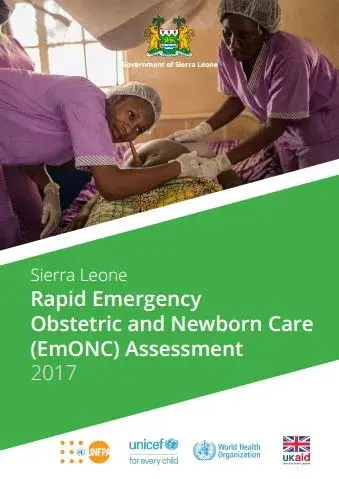The Government of Sierra Leone in collaboration with its partners has worked over the years to ensure the provision of quality sexual and reproductive health services as well as maternal and newborn health care services to its population. However, available evidence reveals that, while some progress has been made, more needs to be done to greatly improve the health of mothers, adolescents and children. It should be noted that the country’s maternal mortality ratio remains one of the highest in the world despite the improvements in the use of maternal health services.
This points to the low quality of health care provided to women during pregnancy, childbirth and the postnatal period and the urgent need to further strengthen care to signifcantly reduce the high level of preventable deaths. Recognizing that improving access to Comprehensive Emergency Obstetric and Newborn Care (CEmONC) and Basic Emergency Obstetric and Newborn Care (BEmONC) are critical to meeting these goals, the Ministry of Health and Sanitation conducted an EmONC assessment in 2017. The survey was carried out with support from the United Nations Population Fund under the UKaid-funded Saving Lives Project (SLP 1). The objective of this assessment was to provide information to policy makers, managers, service providers, donors, partners and other stakeholders on the state of readiness of referral health facilities for emergency obstetric and newborn care.
This 2017 EmONC needs assessment was a cross-sectional population-based survey of health facilities in Sierra Leone covering a total of 173 hospitals, family health centres and private clinics that provided delivery or other maternity services at the time of the survey. The fndings provide information on services from all levels of care in each district in the country. This assessment report comes at an opportune time, as the Ministry of Health and Sanitation moves in the ‘New Direction’ outlined by the Government. We believe the fndings, conclusions and recommendations related to the gaps in access to care in the districts will be very important in prioritizing key services in the health sector.


